Divine names of Creator & Son lost in multiple translations with history & time?
Acts 4:12 Philippians 2:9
Romans 12:2 (YASAT) And be not conformed to this world: but be ye transformed by the renewing of your mind, that ye may prove what is that good, and acceptable, and perfect, will of 𐤀𐤄𐤉𐤄 A’HâYâH.
Matthew 10:16 (YASAT) Behold, I send you forth as sheep in the midst of wolves: be ye therefore wise as serpents, and harmless as doves.


Buy direct and save!
The sound the letter (J) makes has never existed in the Hebrew, Aramaic, Greek or Latin languages. This fact is why no one in Yasha's day could have accurately pronounced the English name Jesus. Sometime during the early 12th century, (J) began showing up in some obscure dialects of the Middle English language. Over the course of the next 500 years, infatuation with the new sound caused letters like (I) and (Y) in the English language to be replaced by a (J). This was especially true of male names that began with (I) or (Y) because the hard sound was, again, considered more masculine. Names like lames became "James", Yohan became "John", and so on. During this period, in 1384 John Wycliffe translated the New Testament to English for the first time. His only source was the Latin Vulgate. Wycliffe continued to use the Latin spelling and pronunciation of lesus. The printing press had not yet been invented and only a few hand-written copies of Wycliffe's Bible were produced. In the 1450's, Gutenburg invented the printing press. Then in 1526 William Tyndale translated the New Testament to the English language from the Latin Vulgate along with the additional help of some ancient Greek manuscripts. Tyndale wanted the Bible translated into the language of the common people and many copies of his translation were printed with the help of the printing press. Tyndale was the first to use the letter (J) in the spelling of the name Jesus. His real name is Yasha! Which means Saviour in Hebrew https://biblehub.com/hebrew/3467.htm

Birthdays, are they Biblical and Christian? Why does the world celebrate their births day or birthday?

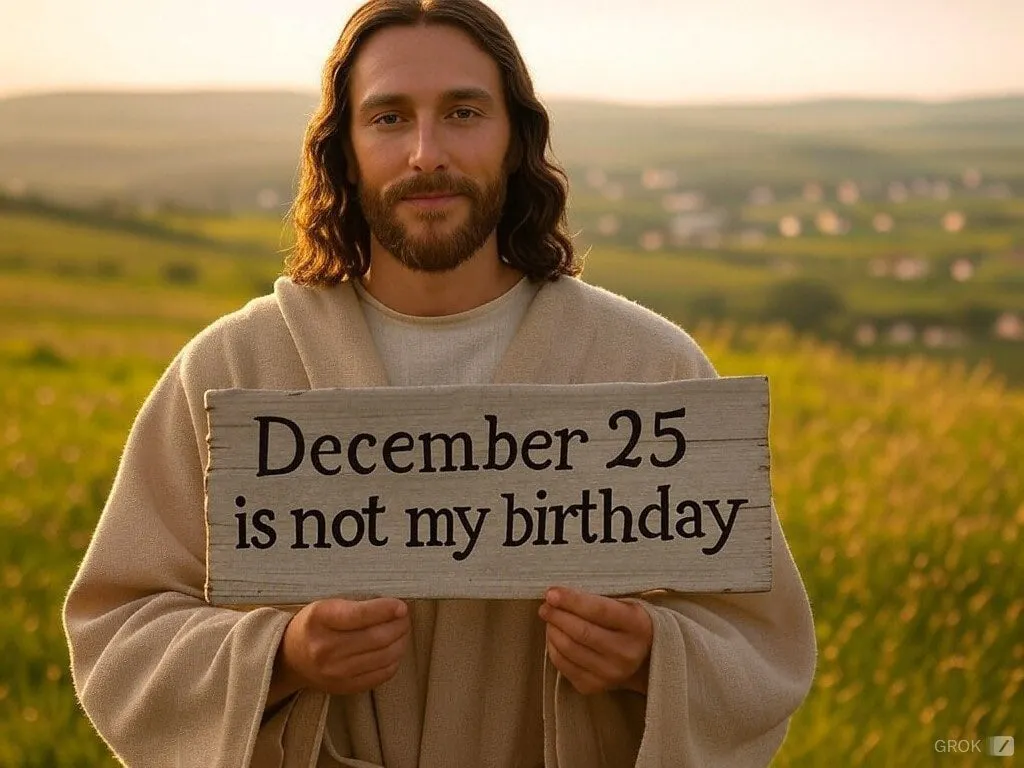
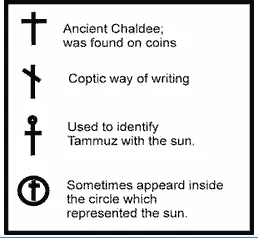
Tammuz the Babylonian god was born Dec 25. The Messiah likely born September 11th, 4 BC. He was Crucified on April 3rd, 33AD
Did first century Christians celebrate Christmas? No, first-century Christians did not celebrate Christmas. The celebration of Christmas as we know it today did not begin until the 4th century. Early Christians focused more on Jesus's (Yasha's) death and resurrection, particularly around Easter, rather than his birth. There is no record of any specific celebration of Jesus's (Yasha's) birth during the first century. The concept of celebrating birthdays, including Christ's, was not common among Christians at that time, as some early Christian leaders like Origen considered birthday celebrations to be pagan.

Should we be celebrating birthdays?

The highest of all holidays in the Satanic religion is the date of one's own birthday. The Satanist feels, why not really be honest? And if you are going to create a God in your image, why not create that God as yourself? Every man is a God if he chooses to recognize himself as one. Have you ever wondered if something as innocent as celebrating your birthday could carry a deeper, darker significance? Today, we're diving into a truth that will challenge what you thought you knew about this seemingly joyous occasion. Some say birthdays are harmless, just a time for cake and celebration. But what if I told you they might be far more sinister than you ever imagined? Let me ask you, why do we blow out candles on our birthdays? Have you ever stopped to consider what this act truly means? In today's world, we follow traditions without question, simply because our ancestors did the same. But what if those traditions are spiritually dangerous? This is the hidden threat of tradition. When it comes to spirituality and worship, the stakes are even higher. Why do so many people blindly follow the traditions of men, ignoring the stark warning found in the Bible. In this video, we're going to unravel the truth behind birthdays and their hidden meanings as we explore their origins, their significance, and occult practices, and how these traditions conflict with biblical teachings. We'll trace how ancient rituals were disguised as harmless fun and became part of today's culture, pulling people into deception without them even realizing it. But here's the bold truth. What we celebrate reveals who for what we worship. By the end of this video, I promise you will not only understand why birthdays are celebrated as they are today, but you'll also discover a shocking link between these celebrations and the spiritual battle for your soul, a connection that the world doesn't want you to see. Stay with me because in the end, I'll share a powerful action you can take to replace the typical birthday celebrations. An alternative rooted in the Bible that allows us to honor God more deeply and reclaim the true form of worship as he intended. Origins of birthday celebrations. Imagine walking through the corridors of time back to the days when empires like Egypt and Babylon ruled the ancient world. These were civilization steeped in power, glory, and spirituality. But their spirituality was not directed toward the creator. It was pointed inward toward man himself. This is where the origins of birthday celebrations truly lie. In Egypt, birthdays were not just moments of joy. They were profound statements of power. Pharos, seen not merely as men, but as gods and flesh, celebrated their birthdays to reinforce this belief. Herodotus tells us that these celebrations celebrations weren't for the people. They were for the Pharaoh himself, a display of his divinity. When the Pharaoh's birthday arrived, it wasn't simply about marking the passage of time. It was about reminding everyone that their leader was a God among men. Picture it. Great banquets, grand parades, and sacrifices filling the air with smoke and incense. The people cheered not just for a man, but for one they believed held divine power. It was an act of worship disguised as a celebration. The Pharaoh's birth was not just a beginning of life. It was to the Egyptians, the manifestation of a God on Earth. It's no wonder that these events were more than simple milestones. They were sacred rituals meant to cement the Pharaoh's status as a deity in the eyes of his people. Now, as we move eastward to Babylon, we find a similar story. Speaker 1 (00:03:50.01) Here, astrologers and priests track the stars and the heavens, connecting the destiny of their rulers to the Cosmos. Birthdays were opportunities to consult these heavenly bodies to divine the future and solidify the ruler's power through spiritual and astrological rituals. Birthdays became windows into destiny, believed to be mapped out by the stars. It's fascinating how these cultures tied something as simple as the date of one's birth to the entire cosmic order. But the Bible speaks against this practice, saying, Thou art wearied in the multitude of thy counsels. Let now the astrologers, the stargazers, the monthly prognosticators stand up and save thee from these things that shall come upon thee, ' Isaiah 47:13. Clearly, seeking guidance from the stars, as the Babylonians did, was contrary to God's way. The Greeks, too, followed in these footsteps, but with their own twist. Wealthy men gathered in private clubs using their birthdays as a time to honor the gods they believed governed their fates. These weren't just parties. They were spiritual gatherings where offerings were made and divine favor was sought. They believed that the gods watched over their lives and that through these celebrations, they could secure blessings and prosperity for the year ahead. It's a stark reminder that what appears as a simple celebration can have deeper spiritual implications. Then we journey to Persia, where the grandeour of birthday feasts is heightened further. Here, kings and nobles through magnificent celebrations that often included sacrifices. These were acts meant to secure favor and protection from their gods. Picture an opulent banquet hall filled with the scent of rich foods and the sound of celebratory music. But behind all the revelry, there was a spiritual transaction taking place, a plea for divine favor. The idea was simple. Honor the gods with sacrifice on one's birthday, and they might reward the celebrant with protection and success. But perhaps it is Rome that took these practices and spread them most widely. At first, birthday celebrations were reserved for emperors. These events were spectacles, complete with parades, sacrifices, and even gladiator combats. The purpose was clear, to show the emperor's power in favor with the gods. But something shifted over time. The Romans democratized the concept of birthdays, extending the practice beyond emperors to the common man. Yet, even then, birthdays were still deeply spiritual. They believed in the genius, a personal deity assigned to every individual at birth. This genius was venerated on the person's birthday, considered responsible for their protection and well-being. The Romans believe that this genius governed their destiny, and honoring it on their birthdays was crucial to receiving its favor. It was as if each person had a miniature deity, a spiritual guardian, whose role was to guide their lives. It wasn't about celebrating the individual's life, but about appeasing the spiritual force that controlled their fate. As we consider all of these ancient traditions, whether in Egypt, Babylon, Greece, Persia, or Rome, one thing is clear, birthdays were never just about celebrating life. They were always connected to spiritual or cosmic forces meant to elevate man or his guardian deity. The Bible, however, directs us differently. We are reminded not to look to ourselves or other entities for power, but to place our trust in God alone. I am the Lord thy God. 'T thou shalt have no other gods before me. Exodus 22:3. These ancient customs, dressed as celebrations, were indeed spiritual transactions. Times when people looked to the stars, to sacrifices, and to personal deities, rather than to the creator himself. And while we have moved far from the grand parades of Rome or the feasts of Persia, it's important to question, have we moved away from the essence of these celebrations, or are we still engaging in rituals with roots far deeper than we realize. As we move forward, let's keep this perspective in mind. What seems like an innocent celebration today may carry echoes of an ancient past, one that challenges where our true worship and trust should lie. Astrology in the Occult. Imagine a farmer planting seeds. He doesn't know how the weather will be or what harvest the year will bring, so he turns to the skies. He watches the patterns of clouds, the positions of stars, hoping they will reveal his fate. This is what ancient civilizations did, but instead of just planting seeds, they were planting their lives, their hopes, and their destinies in the guidance of the stars. In Babylon, When he was born, astrology wasn't just a pastime. It was a powerful tool used to control empires. Birthdays were deeply intertwined with this practice. Astrologers, seen as spiritual advisors and wise men, would study the stars and alignments, using them to determine a person's fate based on the date of their birth. These astrologers believe that the stars had power over human destiny, that a person's future, prosperity or disaster, was written in the heavens at the moment they were born. Now, if you lived in Babylon, you might see a ruler surrounded by these astrologers on his birthday. It wouldn't be just a day to celebrate another year of life. It was a moment to consult the heavens, to seek insight and assurance from the Cosmos. This practice was serious. It wasn't a game. For them, the alignment of planets and stars held the power to decide whether a kingdom would rise or fall, whether a man would be blessed or cursed. But the Bible warns strongly against such practices. In Deuteronomy 18:10-12, it says, There shall not be found among you anyone that maketh his son or his daughter to pass through the fire, or that useth divination, or an observer of times, or an enchanter, or a witch. For all that do these things are an abomination unto the Lord. God made it clear that his people should not look to the stars for guidance or rely on diviners who claim to read the future. Why? Because it's a form of rebellion, of placing trust in creation rather than the creator. Astrology in those days wasn't just about studying the stars. It was about accessing spiritual realms, connecting with forces beyond human understanding. People believe that these spiritual entities, these forces could influence the world around them, and they sought their favor on special occasions, especially on their birthdays. Beddays, therefore, were moments where the physical and spiritual realms intertwined. This wasn't just limited to Babylon. In ancient Egypt, priests consulted the stars to determine the fate of pharos in the nation. The Greeks, too, took these beliefs and made them central to their culture, turning to horoscopes and aligning lives with celestial patterns. This practice even spread to Persia, where horoscopes became a way to interpret the God's will. They believed the stars held the blueprint of human destiny, and each birthday was a chance to read that blueprint anew. Now, think about how these practices have trickled down through time. Many today might read a horoscope, casually, or blow out birthday candles while making a wish, believing in the magic of the moment. But these are echoes of ancient rituals, where people sought the favor of unseen forces, hoping for prosperity or protection, based on the alignment of the heavens. Isaiah 47:13-14 speaks directly to this, saying, Thou art wearied in the multitude of thy counsels. Let now the astrologers, the stargazers, the monthly prognosticators stand up and save thee from these things that shall come upon thee. Behold, they shall be as stubble. The fire shall burn them. They shall not deliver themselves from the power of the flame. This is a strong learning, no matter how much trust is placed in the stars or in astrologers, they cannot save or protect. The fate of man isn't held in the stars, but in the hands of God alone. When people look to the stars, they are, in essence, turning their backs on the guidance and protection that comes from God. The Bible calls his people to seek him directly, not to place faith in something as distant and powerless as the stars. What we see is that birthdays, historically, were more than just celebrations. They were spiritual gateways. They were opportunities for people to open themselves up to the influence of the stars, to spiritual forces that were not aligned with God. This, in turn, set the stage for how birthdays became spiritual events rather than mere moments of joy. Today, while many may not recognize it, the roots of these celebrations still carry a spiritual weight. The ancient cultures placed their trust in things that had no power to save, and the Bible warns us against doing the same. The truth is, when we rely on these practices, we move away from the source of true guidance and protection, the creator himself. And that's why understanding the history behind these practices matters. As we continue this journey, we'll see how these spiritual influences persisted, making birthdays far more than simple days of festivity. The deeper we dig, the more we uncover how spiritual deception can hide behind what seems like harmless tradition. Symbolism in rituals and birthday celebrations. Think about the next time you see a birthday cake, candles glowing bright atop it. Picture a child, eyes full of excitement as everyone gathers around, waiting for the moment when they blow out the candles and make a wish. Seems innocent, doesn't it? But when we peel back the layers, we find a much older, deeper story hidden within that ritual. Let's start with the ancient Greeks. For them, candles were more just sources of light. They were tools of worship. In their temples, they would offer honeycakes to Artemis, the Goddess of the Moon. To honor her, they placed candles on these cakes, believing that the smoke carried their prayers and wishes up to the heavens, to be heard by the gods, it was their way of seeking divine favor, of trying to connect with something beyond themselves. The flames weren't just there for beauty. They were meant to create a spiritual link between Earth and the supernatural. Now, fast forward to today's birthday parties. The act of blowing out candles after making a wish is strikingly similar, isn't it? We may no longer call upon Artemis, but the symbolism remains. It's the idea that blowing out the candles can carry a wish into the unseen world, invoking a power beyond our control. Leviticus 19:31 warns us, regard not them that have familiar spirits, neither to seek after Wizards, to be defiled by them. I am the Lord your God. In other words, the Bible cautions against any practice that seeks to engage with the supernatural outside of God's will, whether that's through wishes, enchantments or calling upon unseen forces. And it's not just the candles. Cakes themselves have deep pagan origins. In ancient times, cakes were often presented as offerings to deities. These weren't just treats for the living. They were gifts meant to appease the gods or spirits. Think of it as a spiritual transaction. The people offered cakes as a sacrifice, hoping to secure blessings or avert misfortune. It was believed that these offerings held power, a way to maintain harmony with the spiritual realm. Speaker 1 (00:15:50.08) But let's be honest, today, most people don't see a birthday cake that way. Yet, the roots remain. What we view as simple or innocent traditions were, in fact, symbolic acts of worship in ancient times. The question is, if the origins are so tied to spiritual practices, have we truly separated ourselves from their intent, or are we still unknowingly participating in rituals meant to call upon powers beyond God, and it doesn't end with cakes and candles. The tradition of exchanging gifts on birthdays also has its roots in these ancient rituals. Gifts weren't just a way to show love or appreciation. They were offering offerings. In cultures like Persia and Rome, these gifts were presented to appease spirits or secure favor. The act of giving and receiving gifts was seen as a way to balance spiritual forces to ensure that the good spirits were pleased and that evil ones were kept at bay. Imagine someone offering a gift, not out of love, but out of fear, hoping that by giving, they could protect themselves or bring luck upon their household. This is the foundation upon which our modern birthday gift giving stands. While today it may be wrapped in colorful paper and ribbon, the history behind it reveals a much more serious and spiritual transaction. What does this mean for us? Well, the Bible calls for discernment. It teaches us that we cannot simply follow traditions without understanding their roots. In Proverbs 14:12, it says, There is a way which seemeth right unto a man, but the end thereof are the ways of death. Sometimes things appear harmless, but their origins tell a different story, a story that requires us to step back and ask if we're aligning with God's will or merely going along with cultural customs that lead us away from him. So when we look at the candles, the cake, and the gifts of a birthday celebration. We have to ask ourselves, are these just innocent acts of festivity, or are they echoes of ancient rituals that were meant to connect with forces outside of God's command? The Bible speaks clearly against participating in practices that open doors to the occult or that call upon other powers, Deuteronomy 18:10-12. These modern customs, while appearing harmless, mirror the practices that God's people were instructed to avoid. The deification of self-birthdays in Satanism. Imagine for a moment a person standing before a mirror. They gaze into their own eyes, seeing themselves not just as another face, but as a God, a ruler of their own world, accountable to no one but themselves. This is the philosophy behind Satanism's emphasis on birthdays, and it's a stark contrast to what the Bible teaches. Anton Levet, the founder of the Church of Satan, boldly declared that a person's birthday is the highest of all holidays in Satanism. It's a day when the individual is elevated above all else, celebrated as their own God. Now, that may sound extreme, but Levet wasn't shy about it. He stated plainly, The Satanist feels. Why not really be honest? And if you are going to create a God in your image, why not create that God as yourself? It's a philosophy built on the foundation of self-defication. Education. This isn't about sharing cake and laughter. It's about affirming one's own supremacy, one's own autonomy. In Satanism, the act of celebrating a birthday is far from innocent. It's a symbolic ritual, a declaration operation that the self is the highest authority, the center of all things. But think about what this really means. It's the same lie that the serpent whispered to Eve in the Garden of Eden. The devil tempts Eve by saying, Yee shall be as gods. It's the oldest trick in the book, convincing man to elevate himself, to believe that he doesn't need to bow to any higher power, that he can be his own master. Speaker 1 (00:19:55.10) It's the original temptation, repackaged and celebrated. And birthdays, according to this belief system, become the stage where this lie is affirmed again and again. Now let's look at what the Bible teaches. In Luke 9:23, Jesus says, If any man will come after me, let him deny himself, and take up his cross daily and follow me. That's a call to self-denial, to humility. It's a call to recognize that we aren't gods. We aren't the center of the universe. Our lives, our breath, everything we are, is a gift from God. We are to walk humbly, recognizing our dependence on him. Satanism, however, turns that upside down. It says, exalt yourself, be your own God. And what better day to do that than on one's birthday Day? Early Christians understood this danger. They knew that to celebrate one's birth in such a grand manner was not just about marking a day. It was a step toward idolatry. They believe that the only day truly worthy of celebration was the day when one entered eternal rest with the Lord. Ecclesiastes 7:1 tells us the day of death is better than the day of birth. For them, life wasn't about glorifying oneself. Speaker 1 (00:21:11.06) It was about preparing to meet God, about living a life that reflected his glory, not their own. Think of it like this. If a man spends his entire life building a monument to himself, pouring all his energy into showing how great he is, what will happen when that monument crumbles? It's like the parable Jesus told of the man who built his house on the sand, Matthew 7:26-27. When the storms came, that house fell because it had no foundation. In the same way, when we build our lives on the foundation of self-worship, it's a house built on sand. It might stand for a time, it might look impressive, but when the trials of life or the final judgment comes, it falls. It doesn't stand the test. Satanism's focus on the birthday as the highest holiday is the ultimate celebration of self. It tells individuals that they are the center of their own universe, that they are accountable to no higher power. But the Bible calls us to a different path, one of humility, of service, of recognizing that our lives are not our own. They belong to God, and it is his name, not ours, that should be lifted high. This stark contrast shows us that there's a choice to be made. Will we buy into the world's celebration of self, elevating our own desires and status? Or will we choose the path that Jesus laid out, a path of surrender, humility, and acknowledging that we are not gods, but servants of the Most High? The temptation to exalt ourselves is as old as humanity itself. P biblical warnings against following the traditions of men. My dear friends, let me share something that might resonate with many of you. Imagine a loving parent who carefully childproofs their home, covering electrical outlets, securing cabinet doors, and removing harmful substances. Why? Because they understand the dangers that their curious child might not yet comprehend. Our heavenly Father shows the same protective care when he warns us about certain practices and traditions. In Mark 7:8, Jesus spoke directly to this issue, saying, For laying aside the commandment of God, ye hold the tradition of men. These words weren't spoken in anger, but with deep concern. Much like that protective parent, think about how many times we've done something simply because that's how it's always been done without examining its true meaning or origin. Speaker 1 (00:23:45.12) Let me share a story that might help illustrate this point. There was once a young woman who always cut the ends off her roast before cooking it. When her husband asked why, she said, That's how my mother always did it. Curious, she they asked her mother who gave the same answer about her own mother. Finally, when they asked the grandmother, she laughed and said, Oh, I only did that because my roasting pan was too small. You see, sometimes we continue practices without understanding their origins their implications. The Prophet Jeremiah addressed this very issue when he declared, Thus sayeth the Lord, learn not the way of the heathen, Jeremiah 10:2. This wasn't meant to be restrictive but protective. Just as we wouldn't want our children with something harmful, God doesn't want us unknowingly participating in practices that could spiritually harm us. Consider how birthday celebrations have evolved over time. While they may seem harmless on the surface, historically Basically, these celebrations often centered around practices that drew attention away from God and toward self-glorification. The scriptures remind us in James 4:6 that God resisteth the proud, but giveth grace unto the humble. But this It isn't about condemning anyone. Speaker 1 (00:25:01.14) Rather, it's about understanding that sometimes what seems harmless on the surface might have deeper implications. Just as Jesus taught us to be wise as serpents and harmless as doves. Matthew 10:16. We must approach our cultural practices with both wisdom and discernment. The question isn't just about what we do, but why we do it. When we celebrate ourselves or others, are we inadvertently taking glory that belongs to God? Are we participating in traditions that, though normalized by society, might lead us away from the path of righteousness? The Christian perspective cursing the day of birth. My friends, have you ever received a gift that, while beautiful, brought with it tremendous responsibility? Picture a young couple being handed the keys to their dream home, only to discover the overwhelming weight of maintenance mortgage and managing a household. Sometimes what the world sees as purely joyous, carries deeper, more sobering implications. In the Bible, there's a moment when a man, overwhelmed by grief and pain, looks to the heavens and curses the very day he was born. That man was Job. Job 3:1-3 tells us, After this opened Job his mouth and cursed his day, and Job spake and said, 'Let the day perish wherein I was born, ' and the night in which it was said, 'There is a man child conceived. Speaker 1 (00:26:29.00) ' Job, a man known for his righteousness, a man who feared God and shunned evil, found himself in a situation so unbearable that he wished his own birth had never happened. This wasn't because Job didn't value life, but because he understood the weight and struggle that come with living in a fallen world. For Job, his birth wasn't a moment to be cherished or glorified. It was the beginning of a life filled with trials, tests, and sorrows. His cry wasn't just about his current suffering. It was a lament over the human condition, a deep recognition of the burdens every soul must carry in this broken existence. Now Job wasn't alone in this feeling. The prophet Jeremiah expressed a similar sentiment. In Jeremiah 20:14-18, he says, 'Cursed be the day wherein I was born. Let not the day wherein my mother bear me be blessed. Jeremiah, who faithfully served as God's mouthpiece, also felt the weight of his calling and the anguish of life. His lament echoes Jobes, a man of God filled with pain, looking at the day of his birth not as a time of celebration, but as the starting point of sorrow and hardship. Speaker 1 (00:27:39.13) Let me share a parable that might help us understand this perspective better. There was once a prisoner who received a pardon after serving many years. When asked which day he celebrated more, the day he was born or the day he was freed, he didn't hesitate to answer. Why would I celebrate the day I entered prison? He said, When I can celebrate the day I set free. These examples reveal something profound. In the Bible, even the most faithful, those closest to God, did not exalt the day of their birth. Instead, they saw it as the gateway to life's trials. A reminder that life in a sinful world is marked by suffering, not by the glorification of self. When Job and Jeremiah cursed their birthdays, they weren't being ungrateful. They were expressing a truth about the human experience. Life under sin is filled with pain, and every day is a reminder of our need for God's grace. Think of it like this. Imagine a soldier stepping onto the battlefield for the first time. He knows the battles he'll face, the scars he might carry, and the weight of the conflicts ahead. His entry onto that field isn't something to celebrate. Speaker 1 (00:28:52.09) It's a sober moment, a time to prepare for what's to come. That's what Job and Jeremiah felt when they looked at the day of their birth. It was the beginning of their battles, a reminder that the journey ahead would not be easy. Contrast this with modern culture's view of birthdays. Today, birthdays are celebrated with parties, gifts, and praises, focused on self and personal achievements. It's a day to be uplifted, to feel honored, to be the center of attention. But this perspective stands in stark contrast to what we see in scripture. While society elevates the individual on their birthday, the Bible shows us that the faithful viewed life differently. They didn't seek to glorify themselves. They recognize the struggle, the suffering, and the trials that come with each new year of life. Here's the crucial difference. Rather than focusing on the self, as modern birthday celebrations do, they turned their attention to God. In their moments of pain, Job and Jeremiah didn't exalt themselves. They cried out to the Creator, acknowledging that their only hope and deliverance lay in him. The Christian walk as Jesus said, involves taking up one's cross, Matthew 16:24. It's not about lifting ourselves up, but about surrendering ourselves, recognizing the true life, true joy, and true celebration, aren't found in our birth, but in our union with Christ, and the promise of eternal life with him. Early Christians understood this. They did not celebrate birthdays, viewing them as a practice rooted in pagan customs and self-glorification. Instead, they honored the day of a believer's death, considering it a day of deliverance and true joy, as Ecclesiastes 7:1 says, The day of death is better than the day of one's birth. In this light, birthdays take on a different meaning. The faithful viewed life not as something to glorify for its own sake, but as a journey of carrying one's cross, a path of surrender, and an opportunity to live for something greater than oneself. The day of birth was a reminder of the journey ahead, a journey that pointed to the hope found not in celebrating the self, but in living a life fully dedicated to God, anticipating the day when true deliverance and rest would come. The call to reject tradition and embrace true worship. So here we are. We've traced the roots of birthday celebrations uncovered their connections to ancient spiritual practices and examined what the Bible says about self-glorification and the traditions of men. And now the question stands, what should we do with all this knowledge? How do we move forward. For many, it might feel like a harsh reality, a confrontation with something so deeply ingrained, so culturally accepted, that to question it feels uncomfortable. But that's the nature of truth. It often challenges us, stretching us beyond our comfort zones. But let's be clear, rejecting a tradition that doesn't honor God isn't about rejecting joy. It's about redirecting that joy, about shifting our focus from self to the one who gives us life. It's about celebrating life in a way that brings glory to the creator, not the creation. Yes, we should thank God for every year he grants us. We should rejoice in the blessings of life and health. But how we choose to express that gratitude matters. Imagine a farmer who every year celebrates his harvest. Now, he has two ways to go about it. He can either boast about his hard work, lifting up his own efforts and praising himself for the abundance, or he can gather his family, kneel down on the fields and give thanks to the one who sends the rain, the sun, and the growth. The first celebration is centered on self, the second on the giver of all good things. And it's this second way, the way of humility, the way of thankfulness, that reflects true worship. God doesn't ask us to live without joy, but he does ask us to discern how we express it. The Bible teaches us that worship is reserved for him alone. Thou shalt have no other gods before me. Exodus 23. Reality. If the ways we choose to celebrate elevate anything, ourselves, the stars, or any tradition rooted in man's invention above God, then it's time for a change. So the challenge is simple. If God commands worship only for him, why follow traditions rooted in paganism and manmade customs? The truth is it's not easy to break away from something familiar, something that's been passed down through generations. But God calls his people to be separate, to stand out, to live according to his word, and not the patterns of this world. Romans 12:2 urges us, And be not conformed to this world, but be ye transformed by the renewing of your mind. It's a call to transformation, turning away from customs that don't honor him and embracing practices that do. If you've made it this far, I encourage you to comment, No more idles, below. This isn't It's just a statement. It's a declaration, a choice to prioritize God over traditions, to seek his ways above our own comforts and cultural norms. And as you reflect on this, consider subscribing for more biblical insights. The journey doesn't end here. There are many practices that we've inherited, often without questioning, that need to be examined in the light of scripture. Together, we can uncover these hidden deceptions and learn how to walk in the truth that sets us free. And now, here's the promise. Choosing to reject the traditions of man for the ways of God is not a loss, it's freedom. Jesus said in John 8:32, And ye shall know the truth, and the truth shall make you free. True freedom isn't found in following the crowd or holding on to traditions because they're familiar. True freedom is found in aligning our lives with God's will, in choosing practices that draw us closer to him rather than distract us. Let's pray. Father, we come before you, acknowledging that sometimes we hold on to traditions without seeking your will. We ask for your forgiveness and for the courage to choose your ways above our own. Give us the discernment to reject practices that don't honor you and to embrace those that align with your word. May we find true joy in celebrating the life you give, not by lifting ourselves up, but by lifting your name high. Speaker 1 (00:35:25.13) Guide us, Lord, in every step that we may walk in your truth and be set free by it. In Jesus's name, Amen. As you go forward, remember that the light of Christ isn't just a guide for our spiritual beliefs, it's a guide for our practices, too. Embrace his truth and let it transform how you live and celebrate, bringing every action into alignment with his will. Ancient ways, traditions, thought. Pass through time, their story is told. But in the light of truth we see, not all customs set us free. Candles bright and wishes made. Are these signs or shadows late? He calls us from the darkened past to walking truth that always lasts. No more no one chains, only Christ who breaks the pain. Traditions fall and hearts are stirred. In his light, we keep his word for every day that life may bring. We lift his name, our King of Kings. Pharoahs feasted King, our King of Kings. Crowned. Rituals deep where faith was bound. But God calls his children here to worship him in truth, sincere. The stars may shine, the world may sway, but in his truth we find our way. No flame, no feast, no worthy rite, can lead us to his holy lives. No more aisles, no more chains, only Christ who breaks the pain. Traditions fall and hearts are stirred. In his life, we keep his word for every day that life may bring. We lift his name, our king of kings. Go of what the world holds dear and seek the one who draws us near. For in surrender. Life begins, a life redeemed, cleansed from sin. Lift your eyes and take his hand, for only on his truth we stand. No more aisles, no more chains, only Christ who breaks the pain. Traditions fall and hearts are stirred. In his life, we keep his word for every day that life may bring, we lift his name, our King of Kings. Oh, the freedom found in Christ, beyond the stars, beyond the night. No ritual can set us free, but in his truth we're called to be. So let's walk the narrow road, lifting high his name alone. Let go of what the world holds dear, and seek the one who draws us near, for in surrender, Life begins, a life redeemed, cleansed from sin. Lift your eyes and take his hand, for only on his truth we stand. Oh, the freedom found in Christ beyond the stars, beyond the night. Real quick, now you can engage even more and support this channel by becoming a member. Becoming a member un It packs amazing resources and helps you connect even deeper. Get access to every image I use, perfect for your wallpaper, studies or presentations. Need a custom visual for a study group or a Bible verse that speaks to you? I'll design it. And members get to suggest entire video topics they'd love to see explored. Honestly, this is about more than perks. It's your chance to directly shape the content and help me create videos that matter most to you. Check the description for details. Thanks so much for being part of this community. God bless.

Save yourself and get a copy of the TRUTH today!
Buy the TRUTH! Proverbs 23:23
Lorem ipsum dolor sit amet, consectetur adipiscing elit, sed do eiusmod tempor.
 Buy $5 PDF in Multiple Languages
Buy $5 PDF in Multiple Languages Buy the TRUTH! Proverbs 23:23
We guarantee you're going to be impressed with Yasha Ahayah Scriptures PDF. If it's not right for you, let us know within 30 days and we'll happily refund that payment and part as friends.Works with Adobe Acrobat Reader (Free)You can install the PDF on your mobile phone, desktop or laptop

Burning Bush Cross 18 KT Gold finish or .316 surgical steel army chain. Engraving optional.

Turkish version
Karine has started the proofreading the Portuguese Yasha Ahayah Scriptures. Would you like to join her to help get the word out there?
Want to help spread the WORD?
Donate any amount!
... if you found something useful help out others by helping to keep these websites and scriptures research running.
No thanks - I don't want to plant seeds and spread the WORD!

30-Day Money Back Guarantee
I have done over a decade of hard-core scripture (Bible) research. Do you have any doubts or questions you need to be answered? Something burning you that needs to be explained to you better. My Engineering background is good at problem-solving. Book a meeting with me for 60 minutes! Your soul is worth more than the cost. Find the right answer and truth!
Acts 7:48-49 Howbeit the Most High dwelleth not in temples made with hands; as saith the prophet.
Ahayah.net is an online Assembly (Church) for this reason.

Welcome to the 𐤀𐤄𐤉𐤄 A’HâYâH Community

Leave a testimonial on the Yasha Ahayah Scriptures
We guarantee you're going to be impressed with Yasha Ahayah Scriptures PDF. If it's not right for you, let us know within 30 days and we'll happily refund that payment and part as friends.Works with Adobe Acrobat Reader (Free)You can install the PDF on your mobile phone, desktop or laptop
Buy direct and Save!
Yasha Ahayah Bible Scriptures PDF
Yasha Ahayah Bible Scriptures Hardcover & Softcover
No thanks - I don't want to save any extra money




This was made by an ahch called Ahman Ban Yahawadah-Yasharahla


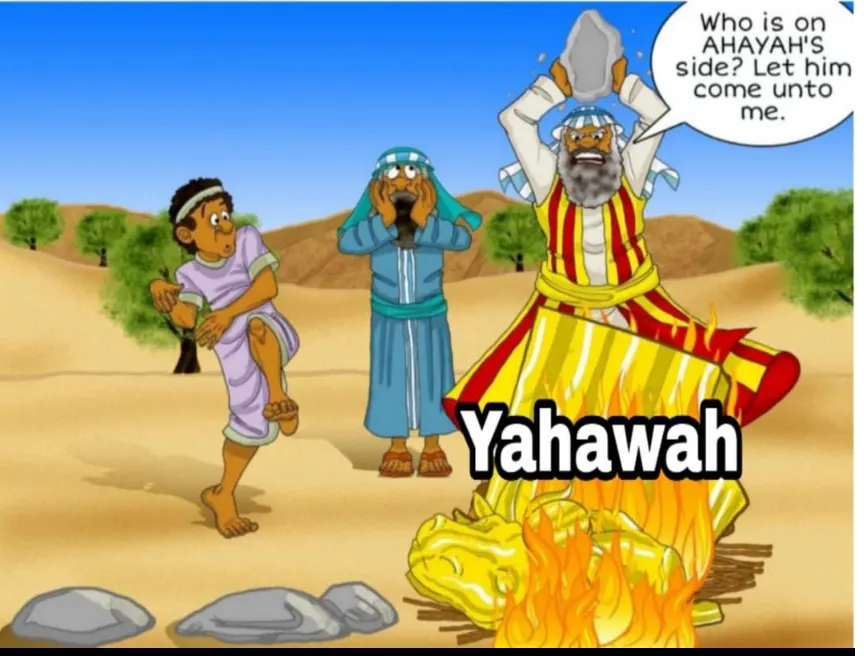





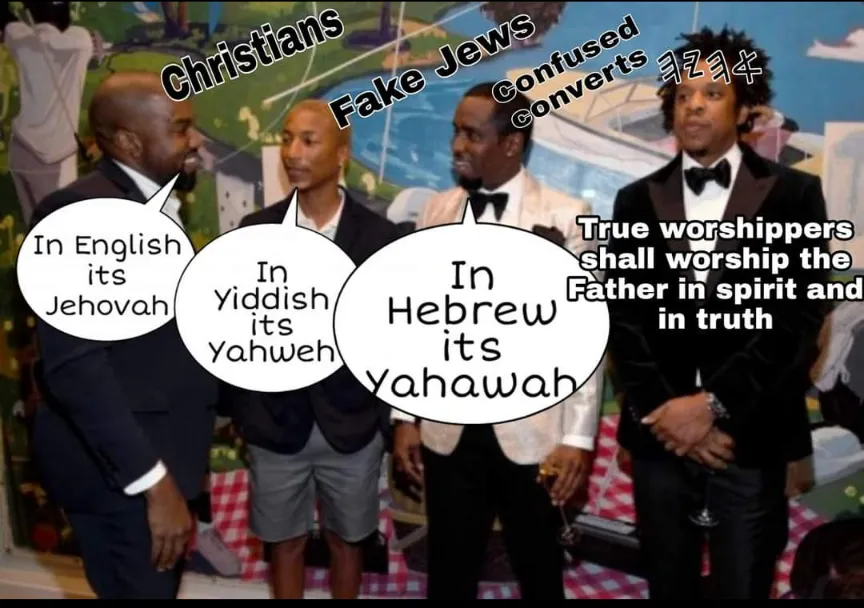
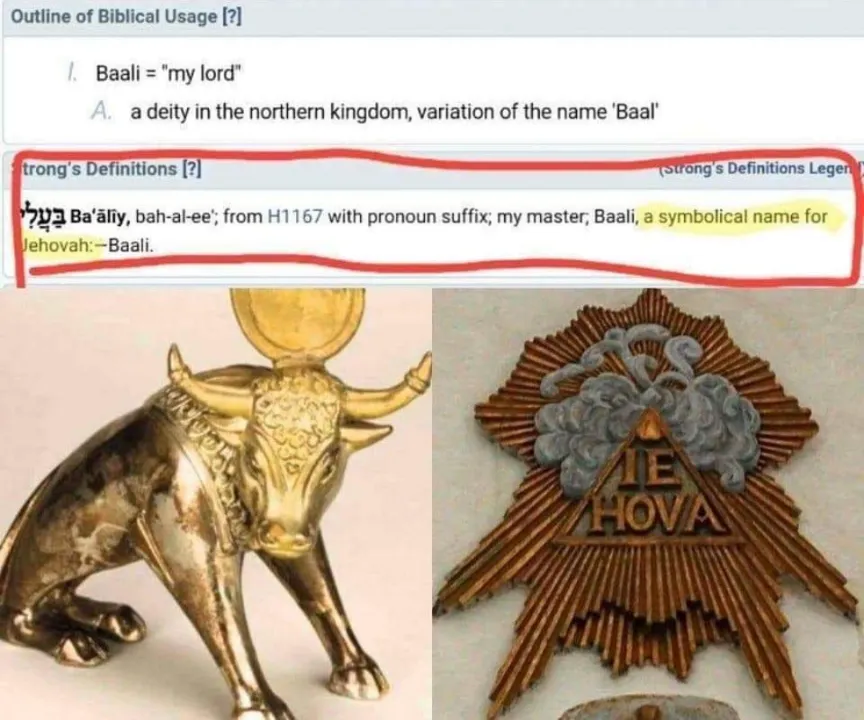
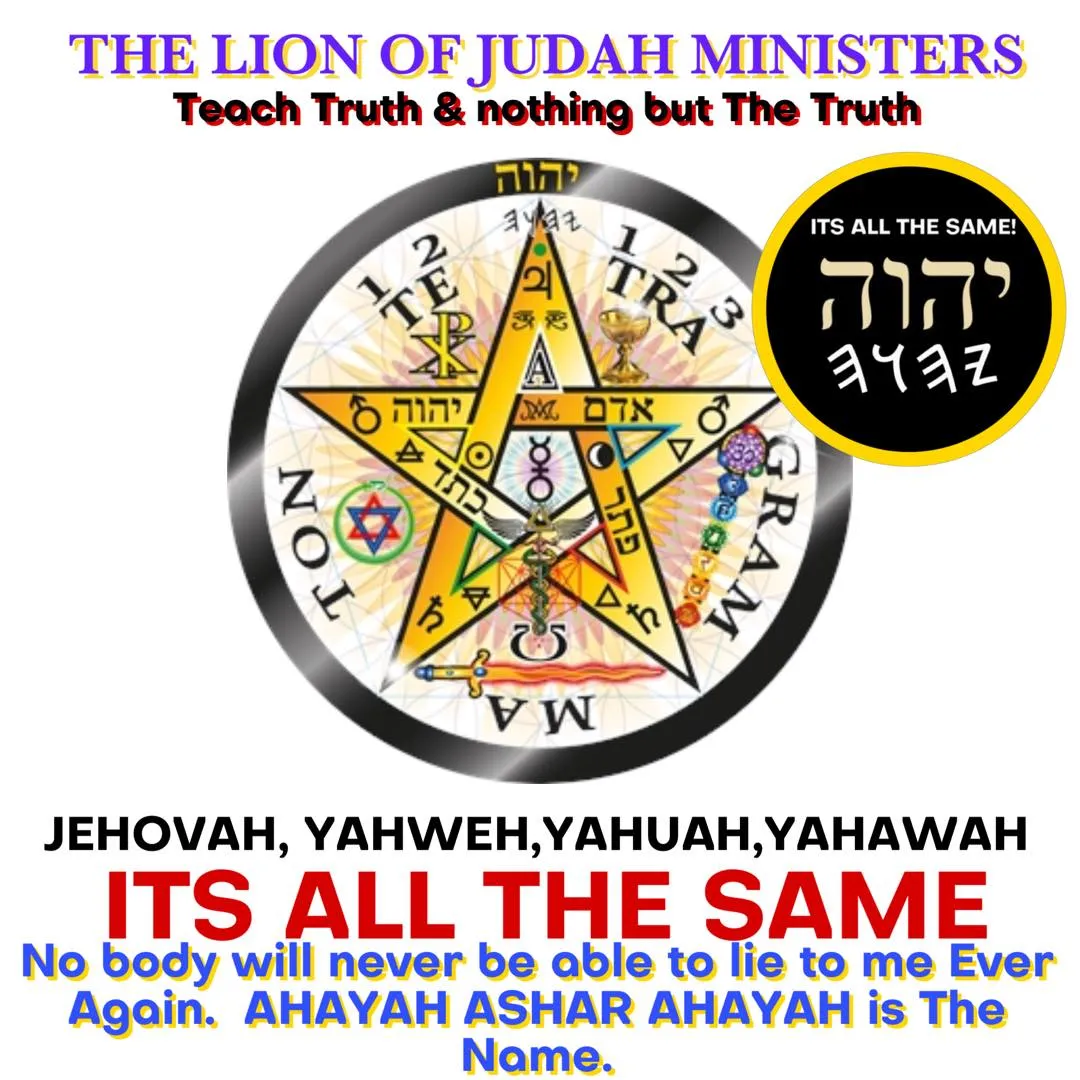
.png)



















